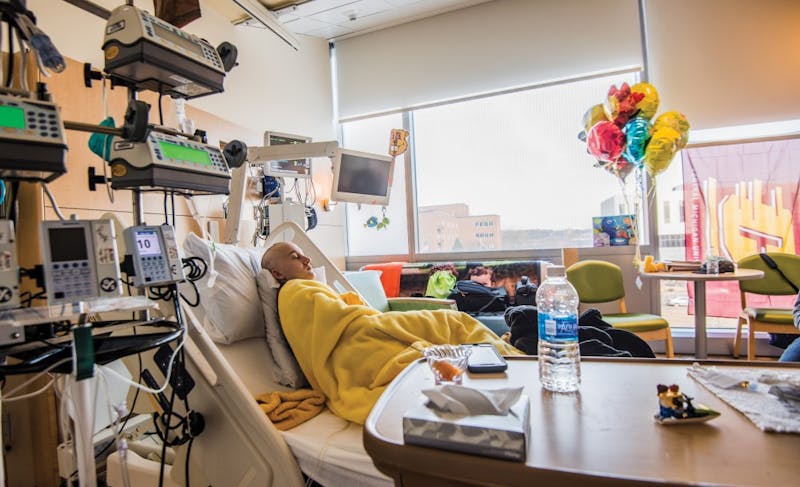COLUMN: CMU student's struggle with bone marrow disease inspired me to donate
After reading about the story of Central Michigan University senior Kyle Tanner, I was overwhelmed with emotion.
The disease he has, Fanconi anemia, is horrible. Being the same age as him, I can't imagine dealing with what he's gone through.
Since Tanner was first diagnosed with the life-threatening disease at age 16, he has lived every day knowing someday he would need a potentially life-saving bone marrow transplant.
The thought made me feel helpless.
I felt so much for him and people in similar situations. But what could I do for him or someone like him?
Finding the right match
When Kyle Tanner learned he had Fanconi anemia at age 16, he didn’t understand the toll the bone marrow disease would take on him.
“It made definitely me anxious and it made me more inclined to do things that I wouldn’t have otherwise did if I didn’t know I had a life-threatening disease,” Tanner said.
After a little research, I found that Be The Match is an easy and quick way to sign up to become a bone marrow donor or to simply donate money.
Immediately, I was compelled to do both. I think college students should seriously consider being a blood, bone marrow, stem cell, plasma, organ or other kind of donor. It's an easy way to make an impact — even save a life.
After telling people I was going to register to become a marrow donor, I kept getting the same response: “Don’t you know how painful it is to donate bone marrow?”
I couldn't understand where these people were coming from. Maybe I’ll be in pain for a couple days from the procedure, sure. But the short-term soreness will be worth it if it means someone else may have a new chance at life.
How could one day of pain compare to a life lost?
I thought about if the situation was switched. What if I, or someone I know, had a disease where they needed a marrow donor, but had to wait years to find a match?
It would be awful.
I would be eternally grateful if a stranger cared enough to give a donation that will save the life of someone they may never meet.
For Tanner, a 20-year-old from Germany is the person who made the decision to help a stranger. It saved Tanner's life.
If donating a part of your body doesn’t sit well with you, you can still donate money. I understand some people may not be in the right financial spot to donate, but you have to think beyond the meaning of money.
I’m a college student. I have bills to pay and work a part-time minimum wage job. But I can still find a way to give. I can sacrifice going to Panera Bread every week or going on my next "treat yourself" shopping trip.
Saving a life is worth it.







